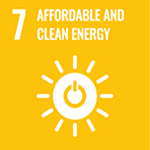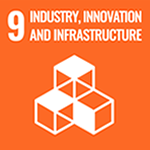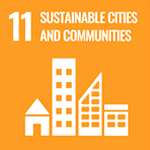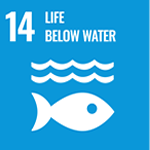Smart Village - Farmer Training and Innovation Center
Product Code :
CATEGORY : PROJECTS
Subcategory : Facility, Investment and Consultancy Projects
The Smart Village Project is an innovation project involving the use of technology and artificial intelligence in the agricultural field. The project was developed in order to increase productivity in the agricultural sector, to ensure more efficient use of resources and to provide technological support to farmers. Agricultural Monitoring Center is considered as an ecosystem in which Smart Irrigation System, IoT technologies, sensors and software are integrated.
There are 570+ million farming families in the world and they produce 80% of the total food production. (FAO Reports)
Smart Village is a new generation rural life model that combines traditional agriculture with advanced technology, ensures efficient production and aims to increase the quality of life of farmers with information and communication technologies.
Problem Area of the Project
There are many problems in the agricultural sector such as productivity, effective use of water resources and other natural resources, climate change and environmental factors. These problems are important for the sustainability of agriculture and food security. The Smart Village Project aims to create a more efficient and sustainable agriculture model by providing an approach to the solution of these problems and using technology and data analytics in agricultural applications.
Social, Economic and Environmental Impacts
The economic targets of the Smart Village include at least 20% savings in plant production costs, at least 22% savings in livestock costs, 30% income increase in livestock production, and 10% increase in total production. Among the environmental and social objectives are to save at least 20% water through agricultural irrigation, to prevent soil and water pollution caused by wrong spraying and fertilization, to increase the quality of life in rural areas and to ensure sustainable economic empowerment.
- Social Impacts: Thanks to the project, farmers' access to technology will increase and they will be provided with the opportunity to farm more efficiently. Income levels of farmers will increase and working conditions will improve with more effective management of agricultural activities.
- Economic Impacts: The Smart Village Project will increase productivity and efficiency by increasing agricultural productivity. This, in turn, will generate more crops and support economic growth in the agricultural sector.
- Environmental Impacts: The project aims to reduce environmental impacts by making more efficient use of water and other natural resources. Thanks to smart agricultural practices, it will be possible to reduce chemical use and save water.
Tabit Strategy
The Smart Village aims to become an exemplary project for other countries by increasing efficiency in agricultural production with information and communication technologies, motivating young people with farming, preventing migration and unemployment, ensuring digitalization in villages, using new agricultural technologies and becoming an international agricultural technology base.
Tabit is a center where agricultural data are collected and analyzed and solutions are offered to farmers with the Agricultural Solution Center. Thanks to the data collected here, the agricultural processes of the farmers will be better managed and more efficient production will be made with the right analyzes. At the same time, farmers are offered consultancy services by experts in agriculture.
Difference and Goals of the Project
- The project aims to increase agricultural productivity by integrating artificial intelligence and IoT technologies in agricultural applications. In this way, it will be possible to achieve higher production with less resources.
- Thanks to the Agricultural Monitoring Center, agricultural data across the country can be managed and analyzed from a central point and feedback can be given to farmers.
- Thanks to the cloud-based system, farmers can easily examine and control the data coming from the sensors from the field and from anywhere.
Project Business Model
The project is a business model that brings together agricultural solutions and technologies and works to increase productivity in the agricultural sector. It is distinguished by the following features:
- Technology Integration: The project develops smart farming applications using next-generation technologies such as IoT (Internet of Things) and artificial intelligence and presents these applications to farmers and agronomists in the field of agriculture.
- Data Collection and Analysis: The project collects agricultural data through sensors and software and analyzes this data on a central platform. Thanks to these analyzes, it offers farmers more accurate and efficient farming strategies.
- Advisory Services: The project provides advisory services to farmers through its agricultural experts and consultants. These services help farmers learn about more efficient farming methods and make the right decisions.
- Cloud-Based Software: The project provides farmers with accessibility from the field and from anywhere, using a cloud-based software infrastructure. In this way, farmers can easily review agricultural data and analysis via mobile devices.
Project Studies and Dissemination
Various events, fairs, seminars were organized in the Smart Village Campus to promote the project and announced through the media.
Sustainability Goals
- The long-term sustainability goals of the project include increasing efficiency and productivity in the agricultural sector, reducing environmental impacts, and providing farmers with access to technology.
- It is aimed to disseminate the agricultural technologies developed within the scope of the project and to deliver them to more farmers.
- Thanks to the continuous collection and analysis of agricultural data, up-to-date information and recommendations will be provided to farmers and agricultural productivity will increase continuously.

Fight Against Poverty
Smart Village supports small family farmers living in rural areas with new production techniques and technologies, increasing their income and productivity. In this way, it prevents farmers from being dragged into poverty and helps prevent migration to the city.

Fighting Hunger, Food Security and Nutrition Improvement
Smart Village promotes efficient and healthy production with trainings and technology support to farmers. It contributes to the end goal of hunger by reducing post-harvest loss by up to 30%.

Healthy Living and Good Living Standards
Smart Village supports the health and quality of life of farmers and protects them from sun-related skin diseases. It improves the health of farmers with information activities and sports facilities that prevent diseases related to physical use in agricultural work.

Quality Education and Making Educational Opportunities Equally Accessible for All Age Groups
Smart Village increases literacy and financial literacy levels by providing quality trainings to small family farmers. It strengthens the knowledge and skills of producers by providing trainings on new agricultural techniques and technologies. While female farmers show more interest in literacy education, men become active participants in technical and technological issues.

Social gender equality
Smart Village offers awareness raising and agricultural entrepreneurship programs to strengthen the social rights and ownership of farm women. It supports women's participation in production and income independence by promoting gender equality.

Clean Water and Sanitary Facilities
Smart Village promotes the efficient use of fresh water by conveying accurate irrigation and fertilization information to farmers. It shares accurate irrigation experiences with the smart irrigation system with artificial intelligence. It works with spraying methods that do not pollute the environment with an early warning system.

Sustainable Energy Use
Smart Village uses technologies such as solar drying and mobile milking systems by supporting clean energy. It provides information to farmers on how to access and use these technologies.

Jobs and Economic Growth
Smart Village facilitates the working conditions of farmers, increases productivity and contributes to economic growth by performing agricultural operations with smart and autonomous systems. Farmers achieve sustainable economic growth by adapting more easily to innovations.

Infrastructure, Sustainable Industry and Innovation
Smart Village strengthens infrastructure and supports sustainable industry by offering farmers innovative agricultural production methods with easily accessible and affordable R&D studies.

Reducing Inequalities
Smart Village aims to reduce inequality of opportunity by disseminating technology to low-income farmers living in rural areas.

Sustainable Cities and Communities
Smart Village prevents migration by increasing the welfare of farmers and offers solutions for sustainable cities and communities.

Sustainable Consumption and Production
The Smart Village guides farmers to adopt more efficient and sustainable production methods.

Combating Climate Change
Smart Village plays an important role in protecting soil, water and natural resources by teaching farmers modern and correct farming methods. In this way, it contributes to the spread of sustainable agricultural practices in the fight against climate change and takes an important step in securing healthy nutrition for future generations and the sustainability of our planet.

Conservation of Marine and Marine Resources
Smart Village contributes to the protection of marine and marine resources with its agricultural waste management system. It is aimed to reduce water pollution and protect marine ecosystems and aquatic life with correct fertilization and pesticide applications.

Protecting Land Ecosystems, Restoring Forests, Stopping Desertification and Biodiversity Loss
Smart Village raises awareness of farmers against practices that harm nature in agricultural production. It encourages efficient and nature-friendly agriculture by using the right methods to preserve the ecosystem balance and preserve forests and life.

Peaceful and Inclusive Societies
Smart Village promotes education and development instead of child labor in farming. While showing that economic welfare will increase with the right methods, it contributes to social development and the formation of strong institutions with the education of farmer children.

Global Cooperation and Partnerships
The Smart Village is shaping the future of agriculture through global collaboration. International companies, universities, local governments, NGOs and farmers come together to form a strong union for a common purpose. Our project, in which all stakeholders are empowered by sharing information and resources, inspires similar studies in Turkey and other countries.




